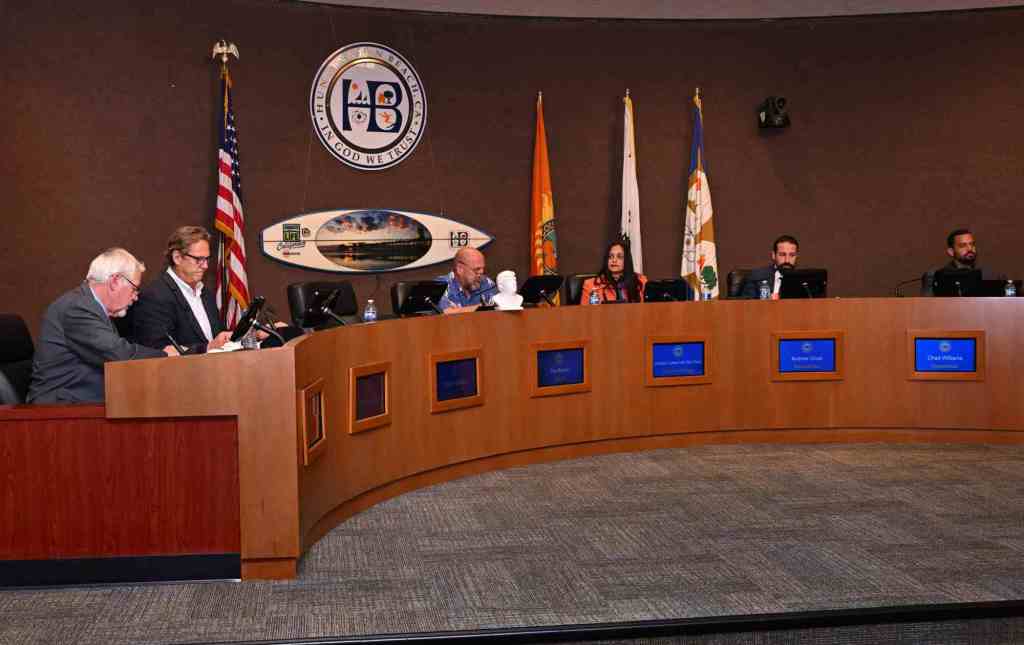
On a normal city council, the idea of requiring nonprofits to sign contracts addressing their responsibilities and liability issues when they provide public services would seem noncontroversial, depending of course on the details of those agreements. But Huntington Beach’s City Council is far from normal, so its plan has ignited understandable pushback.
A recent staff report explains that for several years “certain ‘nonprofits’ and other organizations and individuals have been operating in the city, to help provide valuable services to the city and its residents at little or no cost.” The city notes that groups such as the Friends of the Library, American Legion and the Tree Society have operated “with government and private characteristics, performing public functions but not fully controlled by the city.”
The City Council voted unanimously to create an ad hoc committee looking at putting together the requisite contracts. Council members claim it’s just about improving the partnerships, but some residents are leery. One public speaker expressed fear that it’s a “power grab” designed to punish groups that don’t align with the conservative council’s political goals, per the VoiceofOC.
And former council member Natalie Moser accused the council of having “sown division, injected partisanship and targeted organizations who speak up.” She’s right on that point.
Typically, conservative councils focus on fiscally responsible policies, but this council has taken a big-government approach that has spent its time trying to vet library books, suing the state to stop new laws that limit housing-construction regulations, imposing voter ID requirements and implementing other high-profile MAGA priorities.
Policy-wise, we don’t see the purpose in exerting tighter city control over nonprofits. One of the reasons nonprofits are so successful at bolstering city services is they are precisely not under the thumb of the bureaucracy. Liability issues can be handled easily, by providing a city policy or requiring nonprofits to have policies that meet certain standards.
The committee has six months to come up with its proposals. We’ll withhold judgment until we see something concrete, but we’re not surprised the idea has raised community hackles.



